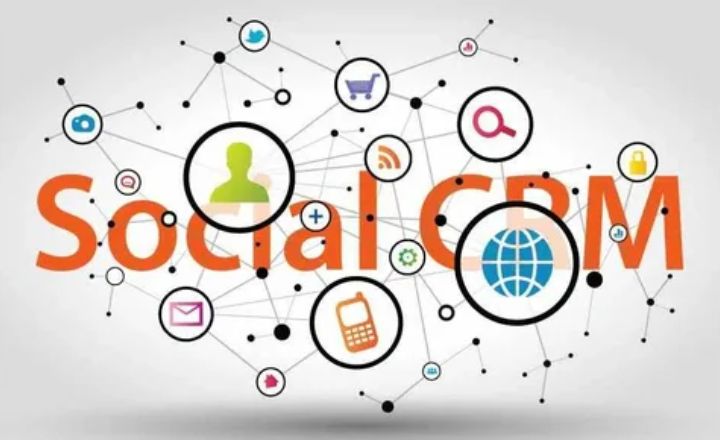Every click, comment, and share can shape a brand’s destiny, the importance of Social Customer Relationship Management (Social CRM) has never been more pronounced.
Your business not only interacts with clients but also anticipates their needs through the very platforms they frequent social media.
Customer relationship management by integrating social channels into a holistic strategy that recognizes each customer’s unique journey. As companies increasingly rely on digital landscapes to forge connections, understanding why Social CRM is crucial for effective client interaction becomes paramount.
Understanding Social CRM
Social media platforms have transformed the landscape of customer interaction, creating a full picture of customer experiences that traditional methods often overlook. CRM, businesses can analyze shares and comments from social channels to extract key insights into customer sentiment and behavior.
This data provides an invaluable resource for understanding not just who your customers are, but also what influences their purchasing decisions at every stage of the buying process., Tracking customers’ purchasing history in tandem with their social media activity allows brands to tailor marketing strategies more effectively.
Enhanced Customer Engagement
Enhanced customer engagement is no longer a mere goal but an essential strategy for businesses looking to thrive in competitive landscapes. Utilizing advanced analytics and artificial intelligence, companies can now tailor experiences that resonate on an individual level, creating a dynamic dialogue between brand and consumer.
Receiving personalized product recommendations not just based on past purchases, but also influenced by your online browsing habits and social media interactions. This kind of intelligent engagement fosters a connection where the customer feels understood and valued.
The rise of digital platforms allows for real-time feedback loops that further enrich these relationships. Brands that actively solicit input through polls or interactive content can innovate their offerings while making customers feel integral to the decision-making process.
Improved Customer Insights
With CRM technologies, businesses are now equipped like never before to understand their customers at a granular level. Improved customer insights derived from sophisticated analytics enable organizations to segment their audience more effectively, tailoring marketing strategies that resonate with specific demographics.
This hyper-personalization fosters not only brand loyalty but also enhances customer experience by delivering relevant content and products precisely when consumers need them.
AI-powered tools within CRM systems uncover hidden patterns in customer behavior that traditional methods might overlook.
These tools can predict future buying trends based on historical interactions, allowing businesses to proactively engage their customers rather than reactively responding to inquiries or complaints. This shift transforms the relationship between companies and their clientele.
Personalized Customer Experience
In personalized customer experience (CX) goes beyond mere customization; it transforms how brands engage with their audiences. Utilizing advanced Customer Relationship Management (CRM) systems, businesses can harness vast amounts of data to not only anticipate customer needs but also tailor interactions that resonate on an individual level.
This involves mapping customers’ journeys in real time and leveraging insights to send timely recommendations, ultimately fostering loyalty and enhancing satisfaction.Personalization is evolving with the integration of artificial intelligence and machine learning algorithms into CRM tools.
These technologies enable businesses to analyze complex behavioral patterns across multiple touchpoints, allowing for context-aware interactions that feel less like sales pitches and more like meaningful conversations.
Real-Time Feedback And Continuous Improvement
Customer Relationship Management (CRM) systems are no longer just tools for managing interactions; they have evolved into sophisticated platforms that facilitate real-time feedback and continuous improvement.
By analyzing customer data as it streams in, companies can detect emerging trends and patterns that may significantly influence their decision-making processes. This proactive approach allows them to adjust sales promotions swiftly, ensuring they resonate with their audience’s current needs and desires.
The level of customer satisfaction continuously empowers businesses to refine their offerings dynamically. Harnessing CRM analytics not only pinpoints what excites customers but also identifies potential areas for improvement before they escalate into larger issues.
Building Stronger Relationships
Social CRM transcends traditional customer relationship management by integrating social media interactions into the broader tapestry of customer engagement. This approach not only captures data from various platforms but also emphasizes the importance of genuine relationships that can foster brand loyalty and trust.
Businesses leveraging Social CRM are tapping into real-time conversations, using insights gleaned from social interactions to tailor their offerings and enhance customer experiences.
By prioritizing authentic dialogue over standard transactional exchanges, companies can build stronger relationships with their audience.
Social CRM transforms this information into actionable strategies that resonate with customers on a personal level. The rise of user-generated content is another exciting facet of Social CRM; it empowers customers to share their stories and experiences, enriching the brand narrative.
Conclusion
Social CRM represents a transformative approach to managing customer relationships in today’s digitally connected world. By integrating social media insights with traditional CRM practices, businesses can gain a comprehensive understanding of their customers’ preferences and behaviors.
This not only enhances customer engagement but also fosters loyalty through personalized interactions. Real-time feedback allows companies to promptly address concerns and adapt to changing market demands. Embracing Social CRM is no longer optional; it’s essential for any organization aiming to thrive in an increasingly competitive landscape.







+ There are no comments
Add yours